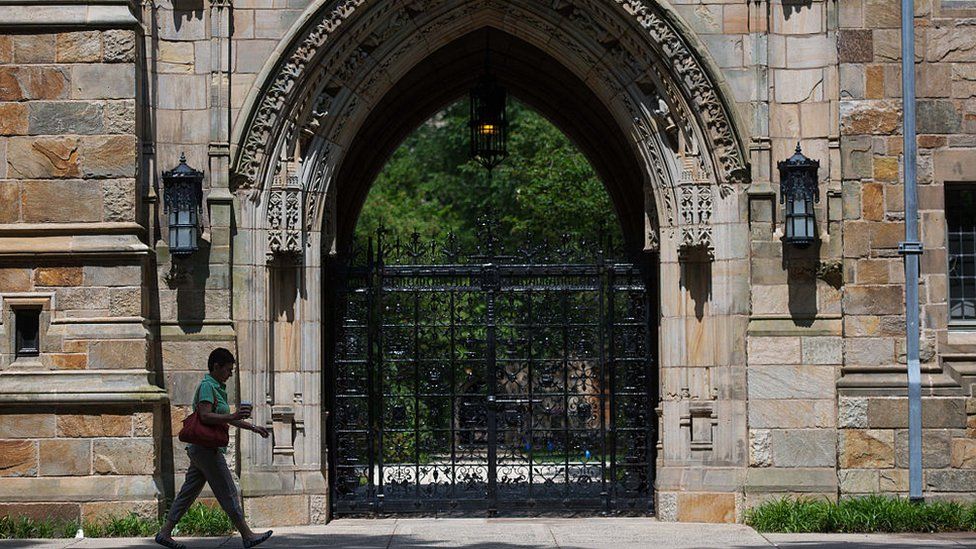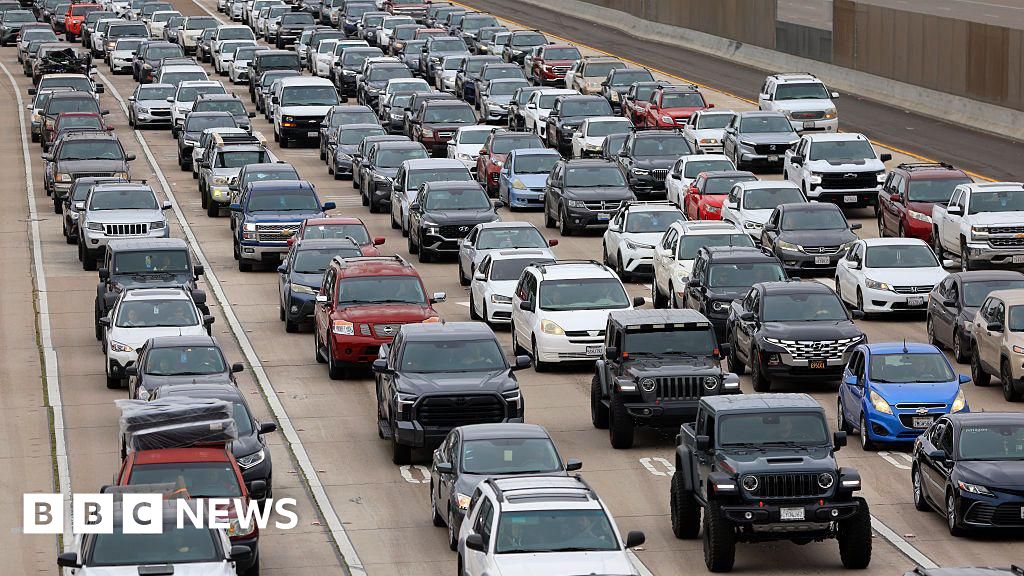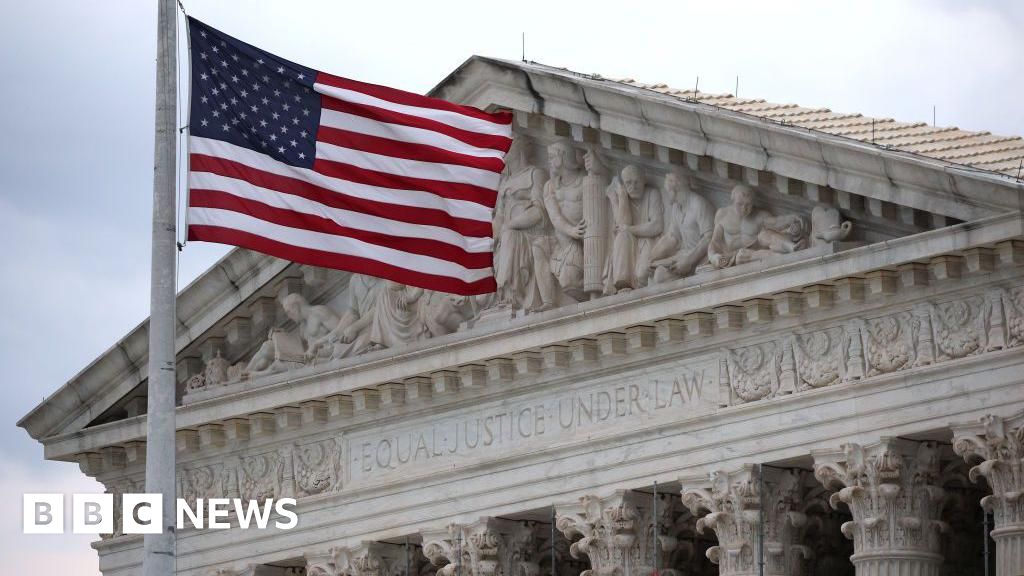ARTICLE AD BOX
 Image source, Getty Images
Image source, Getty Images
By James FitzGerald
BBC News
Dozens of protesters have been arrested at Yale University as demonstrations against the war in Gaza rock US campuses.
Protesters occupying a square ignored multiple requests to leave, the Ivy League institution told the BBC.
Meanwhile, Columbia University students have been told to stay at home on Monday after more than 100 arrests were made during protests there last week.
Those protests raised concerns about the safety of Jewish students.
Since the 7 October attack on southern Israel by Hamas gunmen, debates and fights about the Middle East and free speech have erupted on college campuses across the country, and tensions are now rising at major universities.
Students on both sides say there has been a rise in both antisemitic and Islamophobic incidents
At Yale, many protesters have been calling for the university to cut its investments in weapons manufacturers.
Sunday marked the third night that protesters set up tents on an encampment at Beinecke Plaza, according to student newspaper Yale Daily News.
The university said the protests grew to involve "several hundred people" over the weekend. An invitation to protesters to meet the university's investment body is said to have been declined.
Although some followed a request to leave, other protesters ignored "multiple requests", leading to 47 arrests by campus police, the university said.
Similarly, New York city police were called onto the campus of Columbia last week and arrested dozens of protesters also calling for divestment. The demonstration, which also included students camping on a campus lawn, coincided with Columbia President Minouche Shafik journeying to Capitol Hill to testify before a congressional committee on the university's efforts to tackle antisemitism.
The daughter of Minnesota politician Ilhan Omar was among those arrested and accused of breaking security rules.
Columbia held classes virtually on Monday, the start of the Jewish holiday of Passover, according to a statement from Dr Shafik that highlighted instances of "intimidating and harassing behaviour", including antisemitism.
Students who do not live on campus were advised to stay away.
In Monday's statement, Dr Shafik said tensions on campus had been "exploited and amplified by individuals who are not affiliated with Columbia who have come to campus to pursue their own agendas".
A working group had been created to "try to bring this crisis to a resolution", she added.
US media earlier reported that a rabbi associated with the university had sent a message to 300 Jewish students advising them to keep away from campus until the situation "dramatically improved".
Alleged incidents of antisemitism at Columbia have been condemned by the White House.
The White House deputy press secretary said students had the right to peaceful protest, but denounced "calls for violence and physical intimidation targeting Jewish students".
Earlier, videos posted online appeared to show some protesters expressing support for the Hamas attack on Israel.
In a statement to mark Passover, President Joe Biden also called out "blatant antisemitism" on college campuses, without directly referencing any single institution.
As well as the protests at universities, there have also been wider demonstrations in the US over the events in Gaza.
Pro-Palestinian protesters recently blocked major roads across the country, restricting access to airports including Chicago's O'Hare International and Seattle-Tacoma International, as well as the Golden Gate Bridge in San Francisco and Brooklyn Bridge in New York.

 1 year ago
61
1 year ago
61








 English (US) ·
English (US) ·